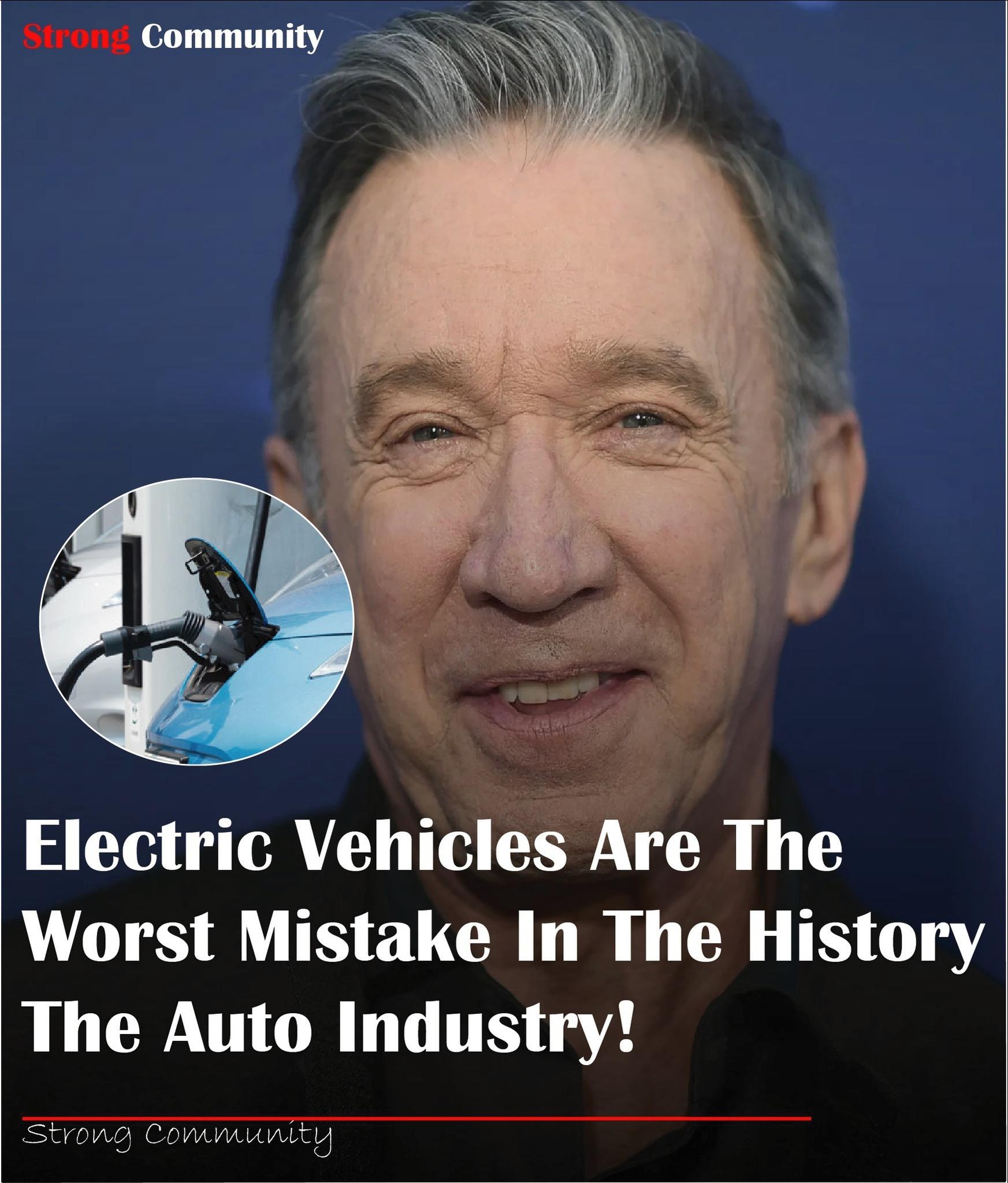Electric vehicles (EVs) are often hailed as the future of transportation, promising to revolutionize the automotive industry and address the pressing issues of climate change and air pollution. Governments, car manufacturers, and environmental advocates have all pushed for widespread adoption, eager to shift away from gasoline-powered cars. While the allure of EVs as the green alternative to traditional vehicles is undeniable, a closer examination reveals that their widespread adoption may, in fact, represent one of the worst mistakes in the history of the auto industry. Behind the glowing promises lies a web of problems that are often overlooked or downplayed in mainstream discussions.

First and foremost, one of the most glaring issues with electric vehicles is the environmental cost of their production. While EVs produce zero emissions during operation, the manufacturing process is far from clean. The production of EV batteries, particularly lithium-ion batteries, requires the extraction of raw materials such as lithium, cobalt, and nickel. The mining of these materials is not only labor-intensive but also highly destructive to the environment. Large-scale mining operations have been linked to deforestation, pollution, and the depletion of natural resources. Moreover, the social implications of mining, such as child labor and unsafe working conditions, are significant concerns. While the intention behind electric vehicles is to reduce carbon emissions, the environmental toll of producing their batteries often negates the benefits during the production phase.
The energy required to power EVs also raises questions about their true environmental benefits. In regions where electricity is predominantly generated from coal or other fossil fuels, the overall reduction in emissions is far less significant. While EVs themselves do not emit pollutants during use, the energy required to charge them often comes from power plants that release large amounts of greenhouse gases into the atmosphere. Even in regions with cleaner energy grids, the shift from fossil fuels to electricity does not entirely eliminate environmental concerns. Moreover, the continued reliance on non-renewable energy sources raises doubts about the long-term sustainability of electric vehicles as a truly green solution.
Another critical issue is the high cost of electric vehicles. The price tag for EVs remains significantly higher than that of their gasoline counterparts, primarily due to the expensive batteries that power them. Despite advancements in battery technology and production efficiency, EVs still carry a premium price. For many consumers, this makes EVs an unaffordable option, particularly when compared to the more budget-friendly alternatives available in the market. While government incentives and rebates can help reduce the initial cost, they do not fully address the financial barrier that many potential buyers face. Additionally, the need for charging infrastructure adds further costs. Home charging stations can be expensive to install, and public charging stations, though growing in number, are still insufficient in many areas, making EV ownership impractical for those without access to charging points.
The performance limitations of electric vehicles, particularly in terms of driving range and charging time, remain another significant barrier to widespread adoption. While improvements have been made in recent years, the average EV still cannot match the range of a gasoline-powered car. This means that for long-distance travelers or those living in rural areas, EVs may not be a practical option. Charging times, too, remain a major inconvenience. While refueling a gasoline car takes mere minutes, charging an EV can take several hours, even with fast-charging stations. This can lead to frustration, especially when drivers are on the go and unable to find a fast charger. Despite technological advances, these limitations significantly hinder the convenience and practicality of EVs.
Moreover, the infrastructure to support electric vehicles is still underdeveloped. Public charging stations are growing in number, but they remain sparse in many areas, particularly in rural or less populated regions. Even in urban areas, the distribution of charging points is often inconsistent, leading to concerns about access and reliability. EV owners may find themselves scrambling to find a working charger when they need it most. This lack of infrastructure makes owning an EV more difficult, particularly for those who rely on public charging stations or cannot install a home charger.

Another critical issue with the rise of electric vehicles is the impact on the automotive industry as a whole. Traditional automakers, many of which have spent decades developing internal combustion engine (ICE) vehicles, are now being forced to pivot toward EV production. While some companies, like Tesla, have successfully embraced the electric vehicle revolution, many others have struggled to adapt. The transition from ICE vehicles to EVs is a complex and costly process that requires massive investment in new technologies, factories, and supply chains. This shift has led to job losses in some sectors, as well as the closure of factories and the obsolescence of certain skill sets. While the transition to electric vehicles is seen as necessary for long-term sustainability, the short-term effects on the economy and employment cannot be ignored.
The push for electric vehicles also raises concerns about resource dependency. The raw materials required for EV batteries are concentrated in a few countries, particularly China, the Democratic Republic of the Congo, and Australia. This concentration creates geopolitical risks, as countries that control these resources gain significant power over the global supply chain. Additionally, the limited availability of these materials means that as the demand for EVs increases, supply shortages may become a serious issue. The automotive industry could face challenges in securing the materials needed to produce batteries, leading to increased prices and potential delays in production.
Finally, the promotion of electric vehicles has diverted attention from other, potentially more sustainable, alternatives. Hydrogen fuel cells, for instance, offer a clean and efficient energy source that could be more suitable for certain types of transportation, such as heavy-duty trucks and long-distance vehicles. Hydrogen fuel cells produce zero emissions and can be refueled in minutes, offering many advantages over EVs in terms of convenience and energy density. However, the focus on electric vehicles has limited investment in hydrogen technology, leaving this potential solution underdeveloped and underfunded.
In conclusion, while electric vehicles have been hailed as the future of the automotive industry, their rise may ultimately prove to be a costly mistake. From the environmental impact of battery production to the high costs, limited range, and insufficient infrastructure, the challenges facing EVs are significant and cannot be ignored. As the automotive industry pushes forward with its electric vehicle agenda, it is essential to reconsider the broader implications and explore alternative solutions that may offer more sustainable and practical outcomes for the future of transportation.






